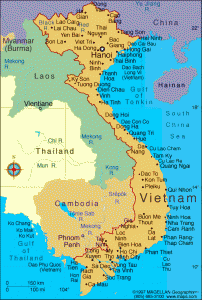
Note: In part II of this series on the Vietnam War we take a deeper look at the factors in 1945-46 that led to the First Indochina War (1946-1954) between Ho Chi Minh’s Viet Minh and the French, who after World War II were trying to re-assert their colonial control over Indochina. As we shall see, despite statements from President Roosevelt, and after his death President Truman, that the United States supported the self determination of nations, the US ignored the repeated appeals of Ho Chi Minh for assistance in dealing with the French efforts at re-taking his nation. As a result, the shooting of World War II had barely ceased when when war once again came to Indochina…here is the whole story of this critical period in Vietnam—Part II of “Ramping Up the Vietnam War”.
Much like the Germans did with France after successfully invading that country early in World War II (1940), the Japanese, after invading Indochina in September of 1940, installed members of the collaborative Vichy French[1] government to administer the territory. Under the agreement with the collaborating French the Japanese would maintain an occupation force of 30,000 troops in Vietnam and would have access to all of the airports in the country as needed by them for military purposes. While Ho Chi Minh and his forces and allies, with assistance from the American OSS, resisted the Japanese in Indochina during WW II, the French cut a deal with them and were allowed to continue to run the country, though under a watchful Japanese eye.
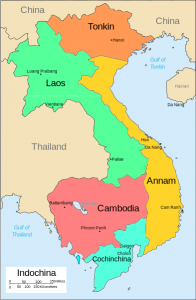
This arrangement would remain in place until March of 1945 when rumors of a possible American invasion of Indochina prompted the Japanese to make a change. Fearing that if the Americans did invade the French would support them, the Japanese ousted the French but kept the same Vietnamese puppet emperor the French had used in ruling the country’s Annam section (please see footnote number 2 below), a man named Bao Dai, who was a bonafide descendent of the royal family of Vietnam which had been ruling the nation since 1802. [2] Intending that Vietnam would be assuming a place in their economic empire, after booting out the French, the Japanese allowed Bao Dai to proclaim independence from France and to install a Vietnamese national government seated in the country’s traditional capitol city of Huế .
Bao Dai’s government would be short lived. In August of 1945, with the end of World War II rapidly approaching and the Japanese position in their nation having been drastically weakened, the Viet Minh led a general uprising in Vietnam that resulted in Bao Dai abdicating and turning control of the nation over to Ho Chi Minh and his supporters. Sensing their opportunity to at last have a nation free of foreign domination they wasted no time in announcing the formation of the “Democratic Republic of Vietnam” and, as noted in Part I of this series, published their Declaration of Independence on September 2nd, 1945, the same day the Japanese formally surrendered.
Because of the French actions in collaborating with the Japanese, and because the French were no longer controlling Vietnam when Bao Dai handed the country over to him, Ho Chi Minh and his supporters claimed a legal right to the creation of their own independent nation. This is covered in the Vietnamese Declaration of Independence as follows:
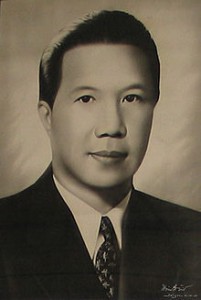
“From the autumn of 1940, our country had in fact ceased to be a French colony and had become a Japanese possession. / After the Japanese had surrendered to the Allies, our whole people rose to regain our national sovereignty and to found the Democratic Republic of Viet-Nam. /The truth is that we have wrested our independence from the Japanese and not from the French. / The French have fled, the Japanese have capitulated, Emperor Bao Dai has abdicated. Our people have broken the chains which for nearly a century have fettered them and have won independence for the Fatherland. Our people at the same time have overthrown the monarchic regime that has reigned supreme for dozens of centuries. In its place has been established the present Democratic Republic.”
The above bit of history brings you up to date on the state of things in Vietnam at the time the British army arrived in Saigon on 13 September, 1945 to receive the surrender of the Japanese troops still in the southern part of the nation. Simultaneously the Nationalist Chinese, after looting their way south from China, arrived in Hanoi to receive the Japanese surrender in the northern part of Vietnam. Shortly thereafter violence erupted in Saigon when 1400 French soldiers who had been released from Japanese captivity by the British went on a rampage and killed a number of civilians, including children, and also attacked some of the Viet Minh. In the unrest that followed the first American death in Vietnam occurred when an OSS officer, Lt. Col. A. Peter Dewey, was mistaken by some Viet Minh guerillas for a French officer and was shot and killed. Concerned that Dewey’s death could jeopardize U.S. support for his fledging nation at that critical time Ho Chi Minh, on September 29th, 1945 sent a letter to President Truman via US Secretary of State James Byrnes. The letter reads as follows:
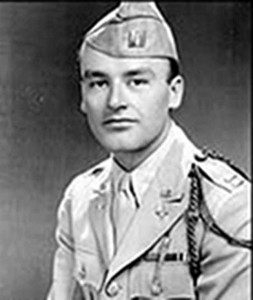
“Saigon radio September 27 reported killing of US Colonel Peter Dewey in course of French instigated clash between Viet-Namese nationalists and French aggressors in Cochin China. As Saigon is in hands of Franco–British forces report cannot be investigated now but we hope sincerely it is not true. But if correct incident may have been due to confusion in darkness or other unfortunate circumstances or may have been provoked by French or British. No matter what the case news moves us deeply and we will do utmost to search out culprits and punish them severely. Measures are being taken to prevent further such incidents. We assure you we are as profoundly affected by death of any American resident in this country as by that of dearest relatives. / We ask only of your representatives in this country to give us advance notice of movements of your nationals and to be more cautious in “trespassing” fighting areas. This will avoid accidents and aid in welcoming demonstrations. (Sent to Dept repeated to Paris) / I assure you of admiration and friendship we feel toward American people and its representatives here. That such friendly feelings have been exhibited not only to Americans themselves but also to impostors in American uniform is proof that US stand for international justice and peace is appreciated by entire Viet-Namese nation and ‘governing spheres’. / I convey to you Mr. President and to American people expression of our great respect and admiration. Ho Chi Minh”
The re-armed French soldiers, with British support, succeeded in expelling the Viet Minh from Saigon and the city was returned to French hands. The position of the Ho Chi Minh government and the Viet Minh was further weakened on October 5th, when French General Jacques Philippe Leclerc [3] and 35,000 French troops arrived in Saigon intending to restore French rule. On October 9th the British in southern Vietnam recognized the French as the sole administrative authority for the nation south of the 16th parallel, though they (the British) remained in the country as well.
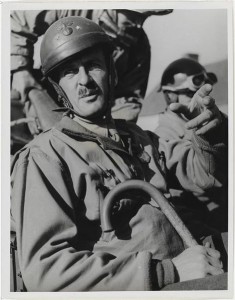
The next several months saw the Viet Minh continue to mount guerilla attacks and resistance to the French and British, along with renewed efforts by Ho Chi Minh to get the United States to assist the Vietnamese in their efforts to create and govern their own nation. On October 22nd, 1945, in another letter to US Secretary of State James Byrnes, the Vietnamese leader once again registered his protest at the French returning to Vietnam and also issued another appeal to the US to live up to the spirit of the agreements in the Atlantic Charter and the founding documents of the United Nations that supported self determination. In follow up letters to the Secretary of State across the end of 1945 he repeated these efforts.
On October 27th, 1945, in a speech honoring the US Navy, President Truman spelled out twelve main principles of US foreign policy at the time. As the second point of his policy he stated the following:
“We believe in the eventual return of sovereign rights and self-government to all peoples who have been deprived of them by force.”
Since the end of the WW II not much support had come to the Vietnamese nationalists from the U.S., but Truman’s speech and his general statement supporting their cause gave them hope. In another letter to President Truman dated January 18, 1946, Ho Chi Minh made mention of the President’s speech in one more appeal for US support for Vietnamese independence:
“…In 1941 Vietnam rose up to oppose Japanese Fascism and sided with Allies. After Japan surrendered a provisional government was set up to eradicate Fascism in Vietnam and restore order. Supported by whole nation, it carried out a democratic program, and restored order and discipline…./ French attacked population of Saigon on Sept 23, 1945 while Vietnam Democratic Republic was endeavoring to carry out reconstruction program. It was followed by systematic destruction and murderous warfare. Each day brings new reports of looting, violence, assassination of civilians, and indiscriminate bombing of non-strategical places by military planes. It is French intention to invade entire country and reestablish their domination. /After “offer of interference (intervention?)” made by Mr. John Carter Vincent (an American diplomat in Asia at the time), people of Vietnam enthusiastically welcomed President Truman’s address of October 28, 1945 in which he set forth the principles of self-determination and equality of status laid down in Atlantic and San Francisco Charters. Since then, French have greatly increased their fighting forces with result that millions will suffer, thousands will die and invaluable properties will be destroyed unless United States intervenes to stop bloodshed and unlawful aggression. /On behalf of people and Govt of Indochina, he requests President’s intervention for an immediate solution of Vietnamese issue. People of Vietnam earnestly hope that the great American Republic will help them achieve full independence and support them in their reconstruction work. /Thus, with assistance of China and United States, in capital and technique, Vietnam Republic will be able to contribute her share to building up world peace and prosperity.” Ho Chi Minh
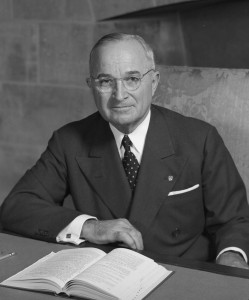
In February of 1946, in exchange for French concessions[4] in Shanghai and other Chinese ports, Chiang Kai-shek’s Nationalist Chinese Army agreed to withdraw and allow the French to return to northern Vietnam. Nearly simultaneously, on February 16th, 1946 Ho Chi Minh sent another letter to Truman, which the US President never answered. In it he once again calls the President’s attention to his own foreign policy speech of the prior October in which support was expressed for national self determination. The letter remained largely unknown until it was de-classified in 1972 and reads as follows:
“Dear Mr. President,
I avail myself of this opportunity to thank you and the people of the United States for the interest shown by your representatives at the United Nations Organization in favour of the dependent peoples. /Our VIETNAM people, as early as 1941, stood by the Allies’ side and fought against the Japanese and their associates, the French colonialists. / From 1941 to 1945 we fought bitterly, sustained by the patriotism, of our fellow-countrymen and by the promises made by the Allies at YALTA, SAN FRANCISCO and POTSDAM. /When the Japanese were defeated in August 1945, the whole Vietnam territory was united under a Provisional Republican Government, which immediately set out to work. In five months, peace and order were restored, a democratic republic was established on legal bases, and adequate help was given to the Allies in the carrying out of their disarmament mission. / But the French Colonialists, who betrayed in wartime both the Allies and the Vietnamese, have come back, and are waging on us a murderous and pitiless war in order reestablish their domination. Their invasion has extended to South Vietnam and is menacing us in North Vietnam. It would take volumes to give even an abbreviated report of the crisis and assassinations they are committing everyday in this fighting area. / This aggression is contrary to all principles of international law and the pledge made by the Allies during World War II. It is a challenge to the noble attitude shown before, during, and after the war by the United States Government and People. It violently contrasts with the firm stand you have taken in your twelve point declaration, and with the idealistic loftiness and generosity expressed by your delegates to the United Nations Assembly… / The French aggression on a peace-loving people is a direct menace to world security. It implies the complicity, or at least the connivance of the Great Democracies. The United Nations ought to keep their words. They ought to interfere to stop this unjust war, and to show that they mean to carry out in peacetime the principles for which they fought in wartime. / Our Vietnamese people, after so many years of spoliation[5] and devastation, is just beginning its building-up work. It needs security and freedom, first to achieve internal prosperity and welfare, and later to bring its small contribution to world-reconstruction. / These security and freedom can only be guaranteed by our independence from any colonial power, and our free cooperation with all other powers. It is with this firm conviction that we request of the United Sates as guardians and champions of World Justice to take a decisive step in support of our independence. / What we ask has been graciously granted to the Philippines. Like the Philippines our goal is full independence and full cooperation with the UNITED STATES. We will do our best to make this independence and cooperation profitable to the whole world. / I am Dear Mr. PRESIDENT, / Respectfully Yours, (Signed) Ho Chi Minh”
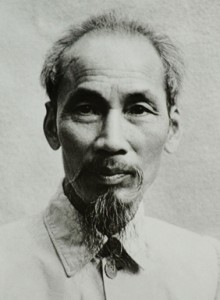
Contrary to his statement in his own foreign policy speech in October of 1945, as well as the principles espoused in the UN Charter, agreed to in San Francisco earlier in 1945, and the Atlantic Charter earlier in WW II, Truman and the US turned a deaf ear to Ho Chi Minh’s pleas for assistance, which allowed the French to press on with their efforts at re-taking Vietnam. Truman’s unwillingness was, no doubt, partially due to the attitudes of the British and French with regard to their pre-WW II colonial possessions. As noted in part one of this series, Churchill was vehemently opposed to Great Britain losing any territory over which the British flag flew or to having their colonial territories put under trusteeship. As Vietnam was demonstrating, the same was true of the French. Maybe if Franklin Roosevelt was still alive the US would have taken a stronger position behind his lofty words, but Roosevelt was dead. It would have taken a courageous decision by Truman to go against his country’s WW II allies and take a stance in favor of independence for Vietnam. For whatever reason, despite his commitment to the concept of self determination in his own speeches, the US President was never able to take that stand.
By the end of February, 1946 Ho Chi Minh and the Viet Minh had entered into negotiations with the French towards a resolution of the conflict between them and in a continued effort to secure their independence. In those negotiations the French had made known that they had plans for Cochinchina, which you will recall from Part I of this series, was the southern part of Vietnam, including Saigon. They also made known they intended to bring French troops to Tonkin (the northern part of Vietnam, where Hanoi was located) in accordance with their agreement with the Chinese. Obviously concerned by these facts Ho Chi Minh sent another urgent appeal to the United States, this time in the form of a telegram to President Truman:
“Hanoi, February 28, 1946
President Ho Chi Minh Vietnam Democratic Republic Hanoi
To the President of the United States of America Washington DC
On behalf of Vietnam government and people I beg to inform you that in course with conversations between Vietnam government and French representatives the latter require the succession of Cochinchina and the return of French troops in Hanoi STOP meanwhile French population and troops are making active preparations for a coup de main[6] in Hanoi and for military aggression STOP I therefore earnestly appeal to you personally and to the American people to interfere urgently in support of our independence and help making the negotiations more in keeping with the principles of the Atlantic and San Francisco charters . / Respectfully , Ho Chi Minh”
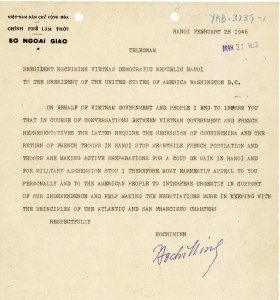
No response or action was forthcoming from the United States and, meanwhile, events in Vietnam were moving rapidly forward. Ho Chi Minh and the Viet Minh found themselves in a dilemma. The Chinese, as noted earlier, had cut a deal with France to leave Vietnam, but in March of 1946 hadn’t yet done so. The Chinese have a long history, going back centuries, of periodically invading Vietnam and Hoh Chi Minh wanted them gone. A statement he made early in 1946 describes his dilemma and his view on the Chinese: “The last time the Chinese came, they stayed a thousand years… The white man is finished in Asia. But if the Chinese stay now, they will never go.”
The most expedient way of getting rid of the Chinese was having the French come back, a move which would facilitate the more rapid departure of Chiang Kai-shek’s forces. As a result, the DRV negotiations with the French finally resulted in an agreement, known as the “Ho-Sainteny”[7] agreement, that was signed on March 6th,1946. The agreement stipulated the following:
- The French government recognizes DRV as a free state, having its own government, parliament, army and treasury belonging to the Indo-Chinese Federation and to the French Union.
The French government agrees to carry out a referendum on the question of the reunification of the three… (Tonkin, Annam and Cochin-China) - The government of Vietnam declares itself ready to accept amicably the French army when, in conformance with international agreements, it relieves the Chinese Forces.
- Each of the parties will take all necessary measures to stop hostilities immediately, to keep military forces in their respective positions and to create the favourable climate necessary to the immediate opening of friendly and frank negotiations.
As can be seen, according to the agreement, though Vietnam would still remain a part of the French Union, Hoh Chi Minh appeared to have been granted nearly all he had been seeking—a free and sovereign nation. He would soon find, however, that the hope that the agreement would be adhered to was wishful thinking. Likely, as can be seen by the actions they took, other than as a temporary arrangement that allowed time to consolidate their position, the French did not really intend to follow through with the agreement.
Later in March, 1946 French troops entered the port of Haiphong and also Hanoi in northern Vietnam and, as per the March 6th agreement, were not resisted by the Vietminh. At the same time the Chinese began their withdrawal. In June, in direct violation of the “Ho-Sainteny” accords the French high commissioner for Indochina announced the formation of a French controlled, separatist government for Cochinchina (the southern sector of Vietnam), basically stating that the area, which included the major city of Saigon, would henceforth be a French colony. As a result a DRV delegation that included Ho Chi Minh traveled to France in the summer of 1946 for a conference (known as the Fontainebleau conference because it was held at the town of Fontainebleau outside of Paris) the purpose of which was to resolve the differences that were clearly still existing between the DRV and the French. Chief among these disputes was the French action in establishing the Cochinchina colony, which Ho Chi Minh and his supporters vehemently disputed the validity of.
After nearly four months of negotiations that got nowhere, in September of 1946 Ho Chi Minh and his delegation left France and returned to Vietnam. Two months later, in November of 1946, Viet Minh and French forces engaged in a fire fight in Haiphong that ultimately resulted in the French bombardment of Viet Minh positions in the town. At the same time French forces occupied Hanoi, driving the Viet Minh resistors into the surrounding countryside. Thus began what is now called the First Indochina War, between France and Ho Chi Minh’s Viet Minh, for control of the Vietnam portion of French Indochina. Peace would not come to the country of Vietnam again for nearly 30 years.
To be continued…
Copyright © 2014
By Mark Arnold
All Rights Reserved
[1] When the Germans successfully invaded France towards the beginning of WW II (1940) they installed a collaborative French Government in the town of Vichy in France. Regarded as traitors by the Free French, the Vichy French administered France while under German control until the Allies liberated the country in 1944.
[2] When the French took full control Vietnam in the late 1800s they divided it into three protectorates called Tonkin in the north, Annam in the long center of the country, and Cochinchina at the country’s southern end, which included Saigon. Bao Dai’s family was given nominal rule over Annam, though in reality the French still called the shots. With the death of his father in 1926 the thirteen year old Bao Dai was named the emperor but due to his youth he did not immediately ascend to the throne. He spent the next six years studying in France and then returned to assume his Emperor duties in 1932 at the age of 19. As a result he was the French “puppet” emperor when the Japanese arrived in 1940.
[3] General Jacques Phillippe Leclerc was a General with the Free French army during WW II who participated in the liberation of Paris from the Germans as well as other battles. At the end of the war he was given command of the French Far East Expeditionary Corps, the duties of which brought him to Vietnam.
[4] A “concession” is an area within one country that is administered by another, usually conceded by a weaker country to a stronger one.
[5] “Spoliation” means the act of plundering.
[6] Coup de main: French, meaning a swift attack that accomplishes its purposes in a sudden blow.
[7] The “Ho-Sainteny” agreement is so called because it was negotiated by Ho Chi Minh on behalf of the Democratic republic of Vietnam (DRV) and the French special envoy Jean Sainteny

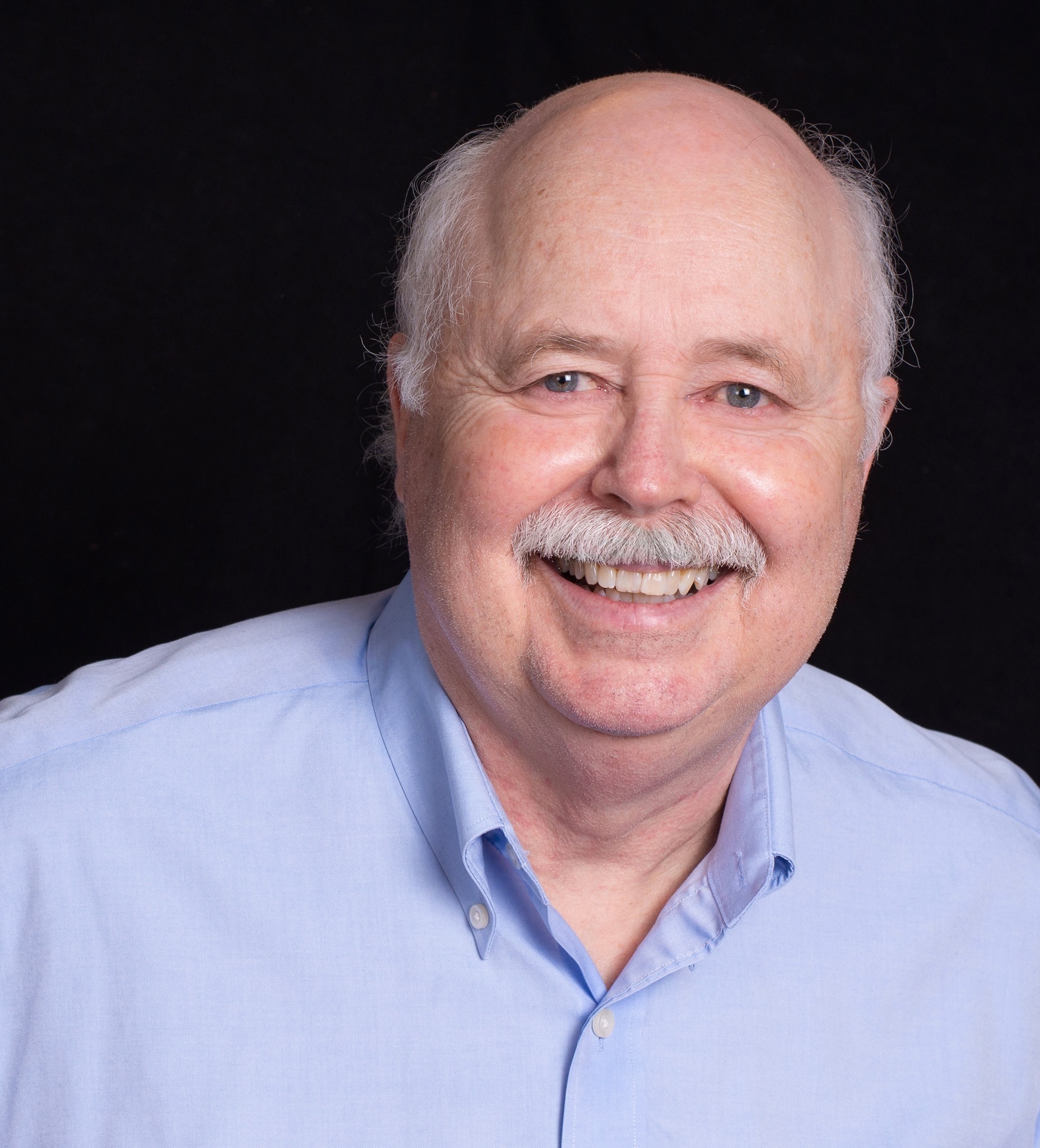
2 Responses
I’m very pleased to discover this page. I need to to thank you for ones time
just for this wonderful read!! I definitely appreciated every part of it and i also have you saved to fav to look at
new information in your website.
You are most welcome and am glad you are enjoying the articles. Spread the word…Best, Mark